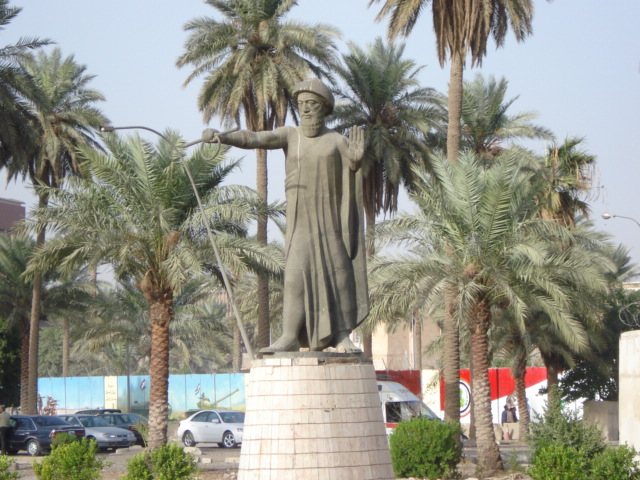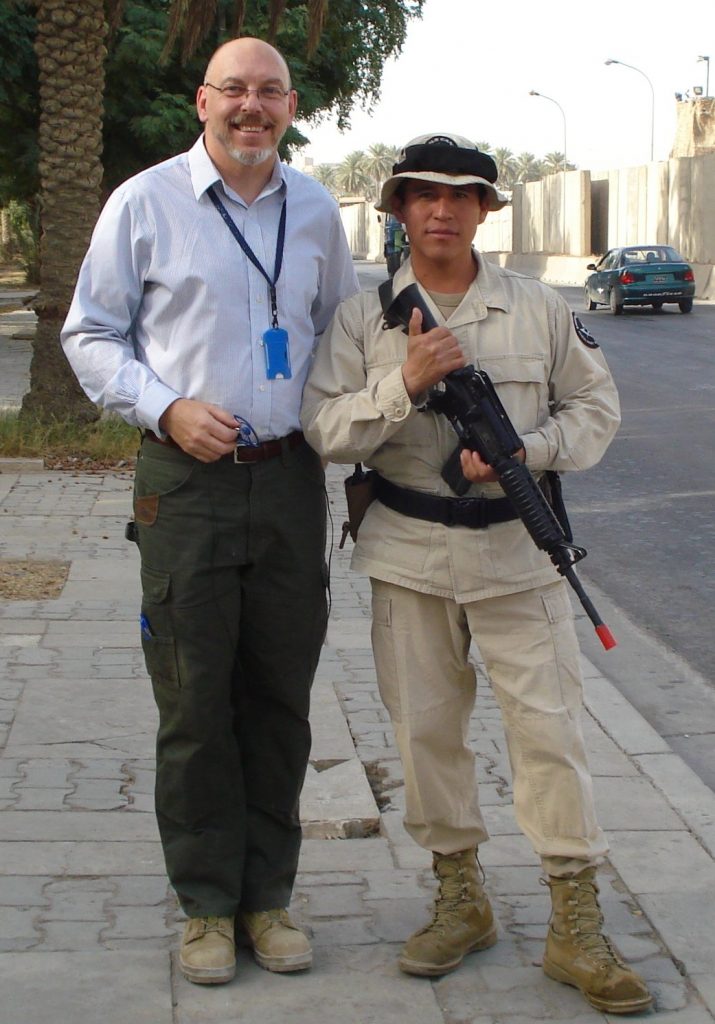
I think this is Haburabi, but I do not know for sure. I found him while walking around in Baghdad IZ. The Peruvians guarding a nearby building knew less than I did about it. They just thought it was bonito. It did not have an inscription. So I am just assuming it is Hamurabi because it COULD be Hamurabi and I need the picture of the great lawgiver in this post about the rule of law. If anybody knows better, let me know.
The council for the sub district in Haqlaniyah is an important part of the emerging democracy in western Anbar. Members take their positions seriously and of the twenty-two members, at least eighteen regularly attend meeting, but they lack of experience and the absence of clear lines of authority complicate proceedings. The council operates much like a homeowners association in an American suburb. It avoids some of the issues that naturally might fall under its mandate and debates things beyond its scope. Members are volunteers. They were not elected to their posts. Although they were later confirmed by the provincial governor and are paid for their efforts, the group was self formed by community leaders and/or those who thought of themselves as community leader.
The council conducted some useful business at the meeting we attended. They discussed provisions for the support of widows, for example. A bigger topic discussed was the need to create employment. In this area, however, the Council is essentially powerless. A disturbing aspect of the debate was, in fact, that Council members thought that they could plan job creation among private businesses and should be involved in micro management decisions of private enterprise. It is a idea the lingers from the failed socialism of the past. It may take a while for them to realize that they can help create conditions for employment, but that they do not create the jobs.
After the Council meeting, we were treated to a Kabuki performance by a Deputy Mayor. Our ePRT had approached him some time ago to ask him to develop a project in cooperation with the Council. This latter requirement was specifically the purpose of the project. Project definition was flexible, since this exercise was designed to foster cooperation among local government officials. The Deputy Mayor developed plans for a sports complex, avoiding consultation with the Council, while leading the PRT to believe otherwise. We had come to this meeting ready to finalize a project we thought had been vetted and approved. We were surprised when the Council Chairman told us that his higher priority would be lighting in the market places and surrounding streets.
With his game revealed, the Deputy expressed outrage that he had worked so hard with no result. The end result of this is that WE need to start again.
Beyond personalities, a systemic problem involves lack of coordination among the parts of government. The councils in each locality can go directly to the provincial council and the governor. They need not coordinate with neighboring districts or even with the mayor of their own locality. There currently is no district council. To take the homeowner association analogy to a conclusion, it is as if each homeowner’s association had a line directly into the state governor.
The council experience will eventually produce leaders of Iraqi local democracy, but watching the process can sometimes be frustrating. The experience that prepared me best to understand the whole process was my wife’s tenure on our local homeowner’s association. Personalities rule.
We cannot be too critical, however. The problem is that these guys are acting like … politicians. Democracy is sometimes messy, but it works better than the alternatives.
BTW – the Peruvian who didn’t know about the statue still insisted on having his picture taken when I told him I was going to post the statue picture, so I obliged.

